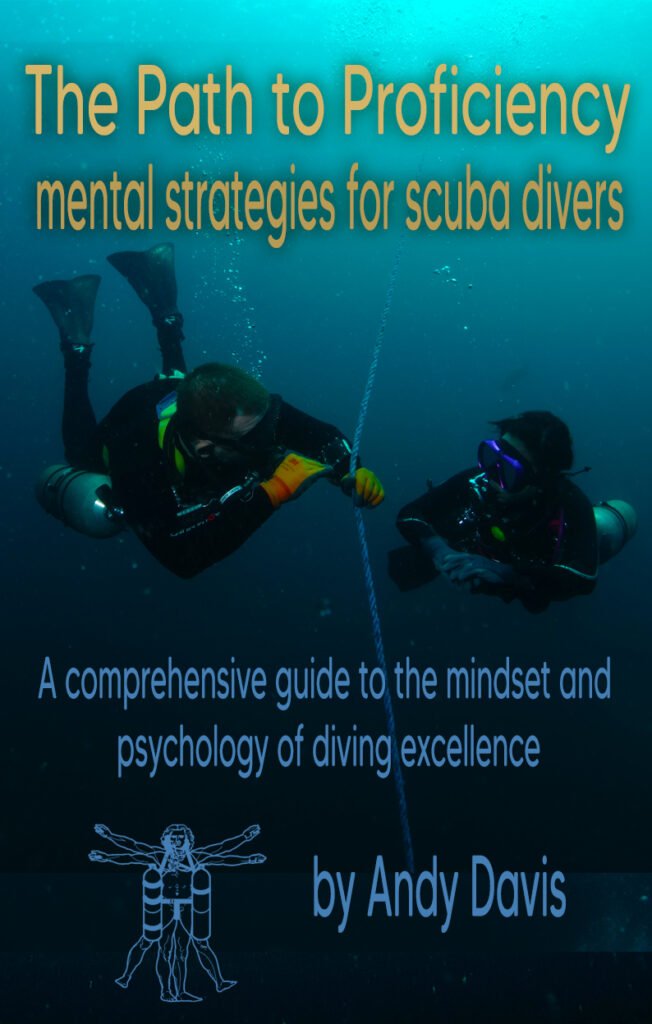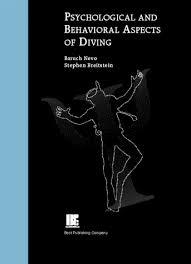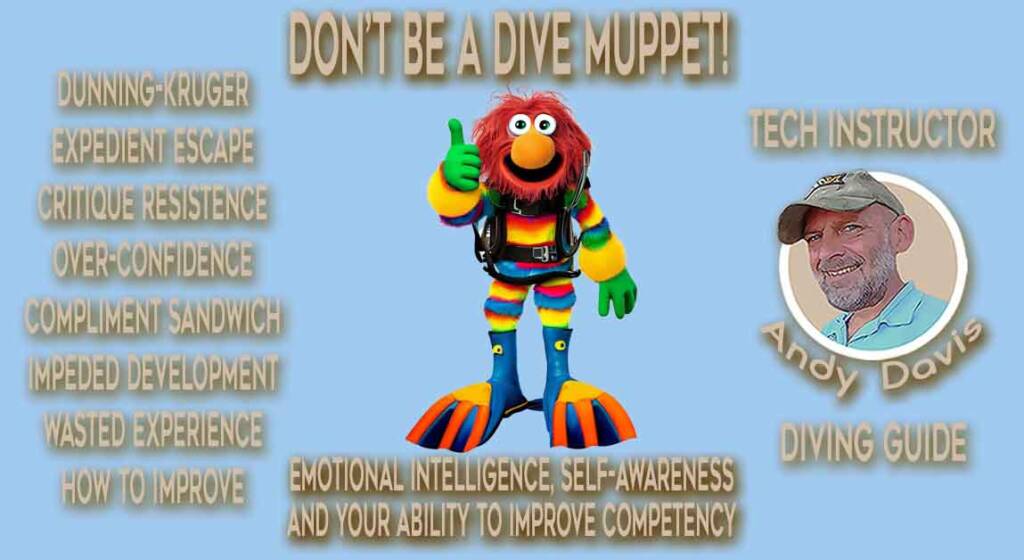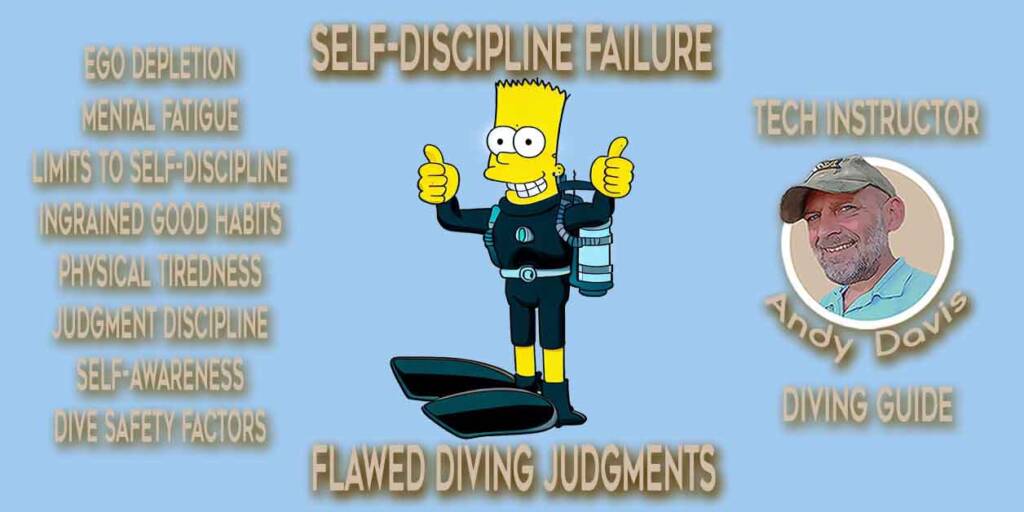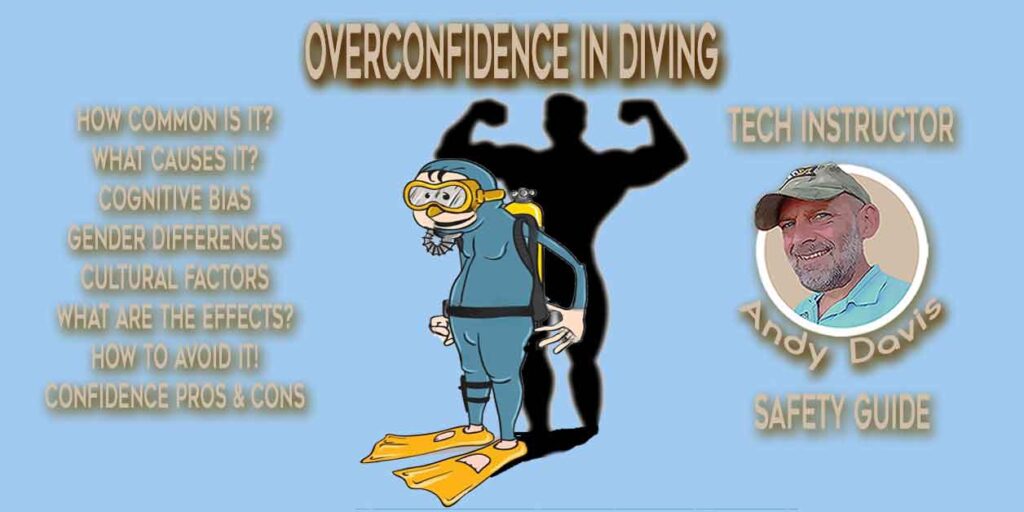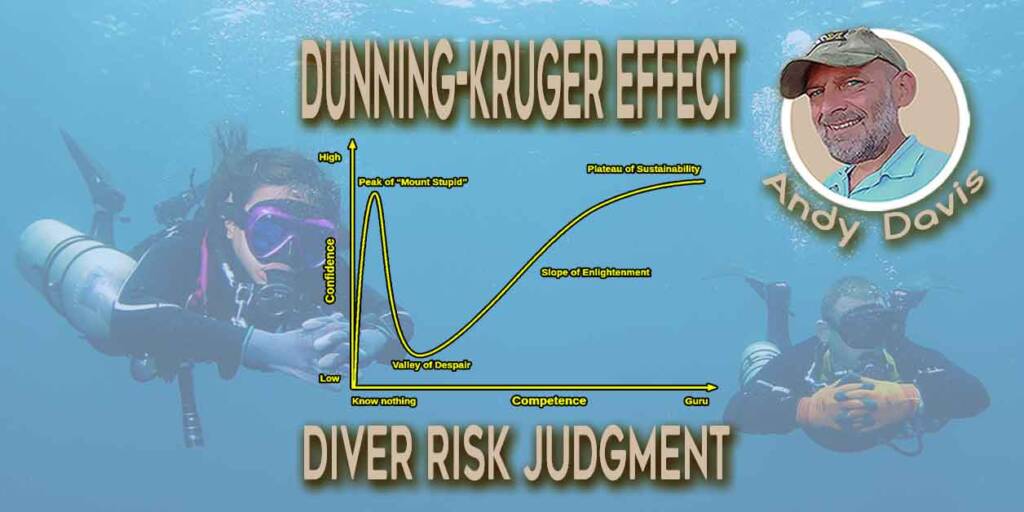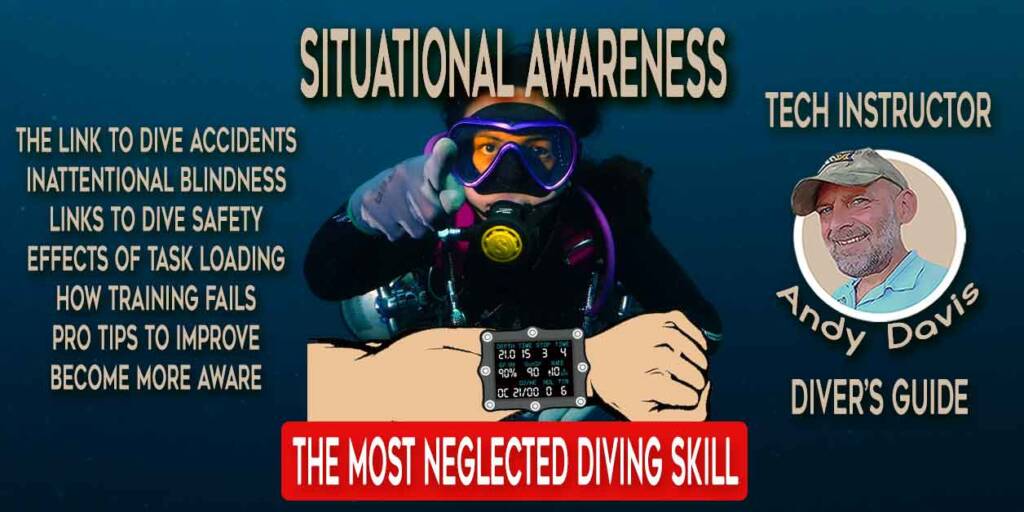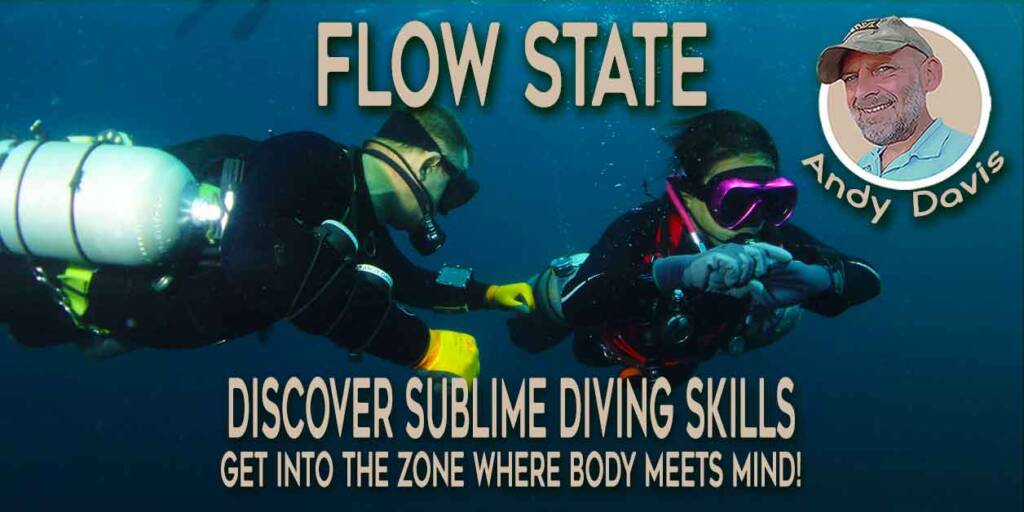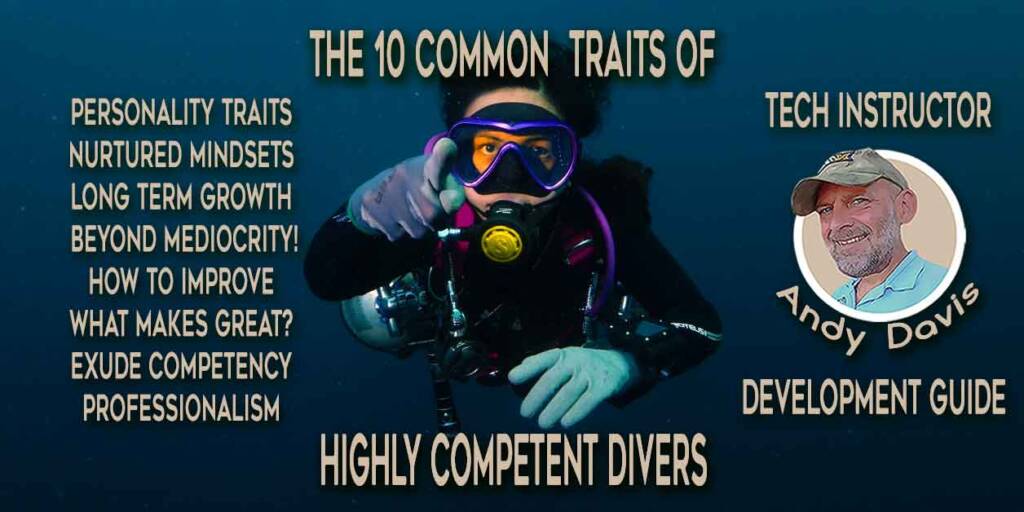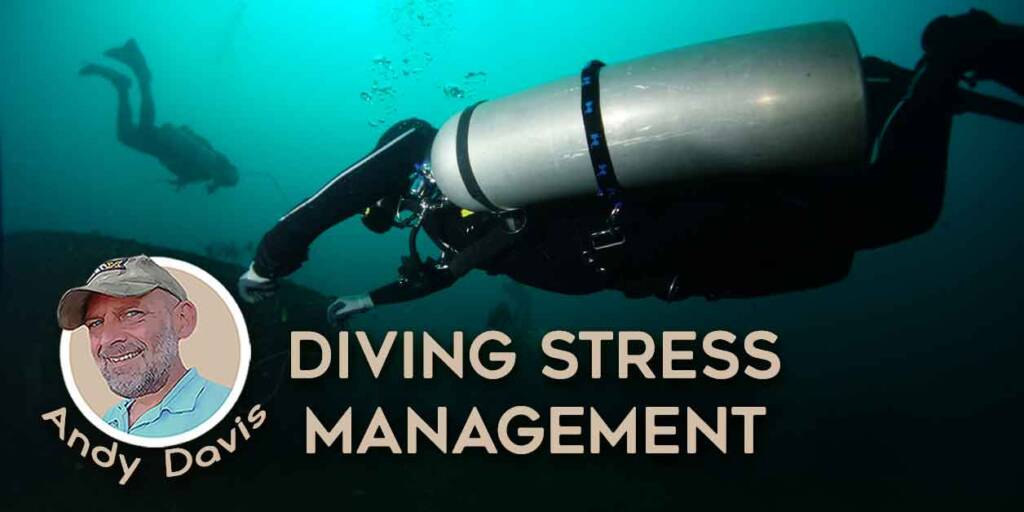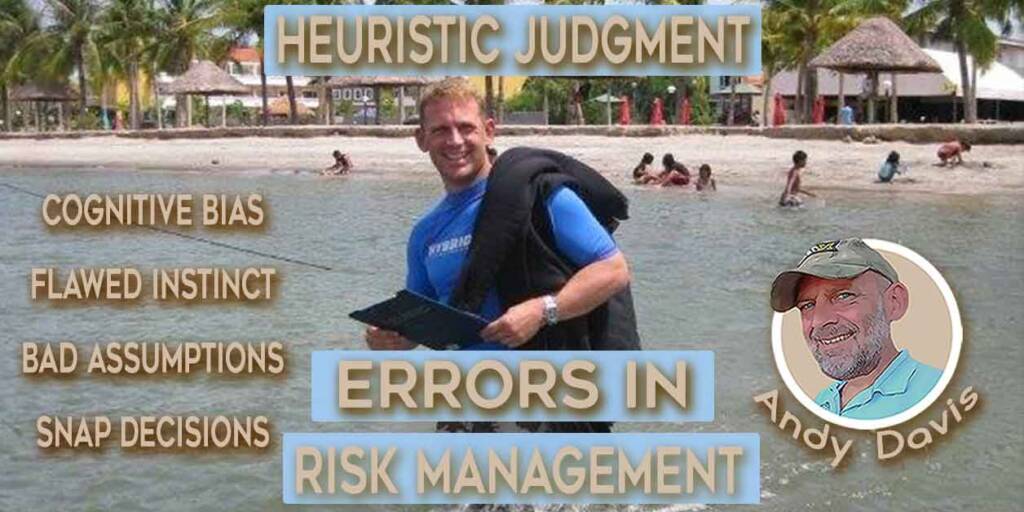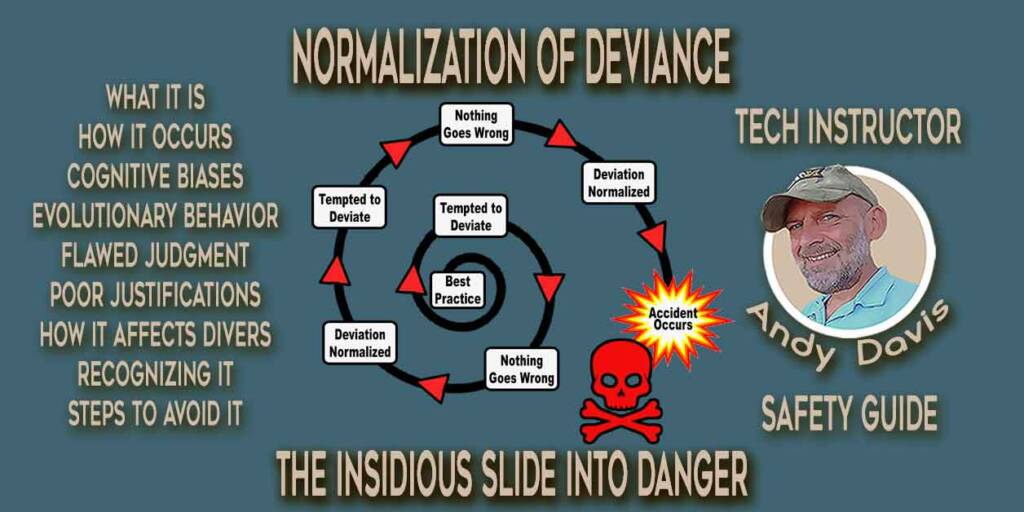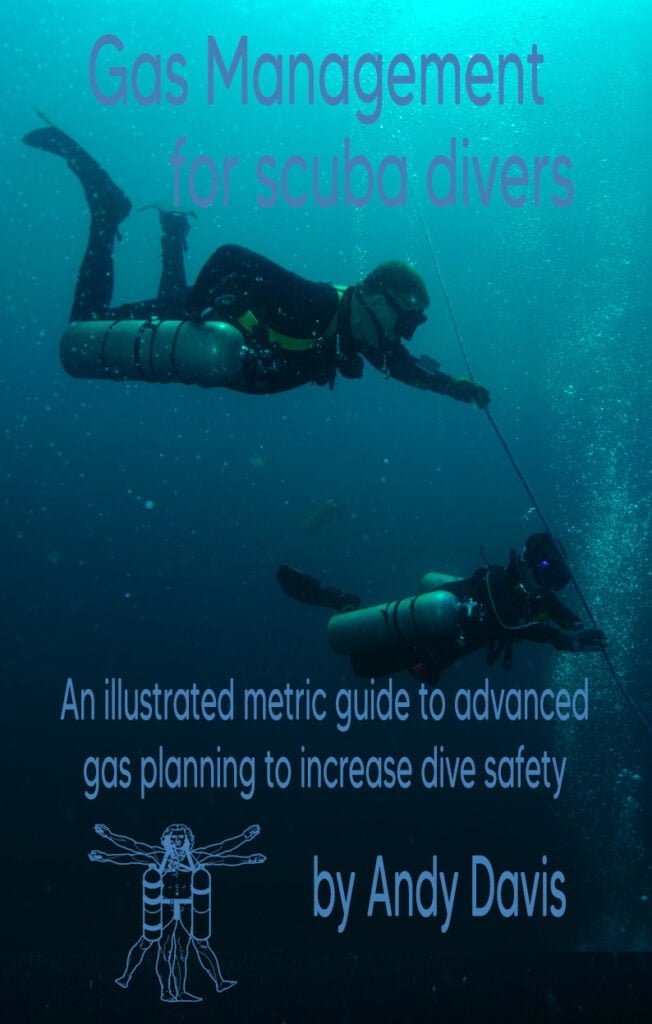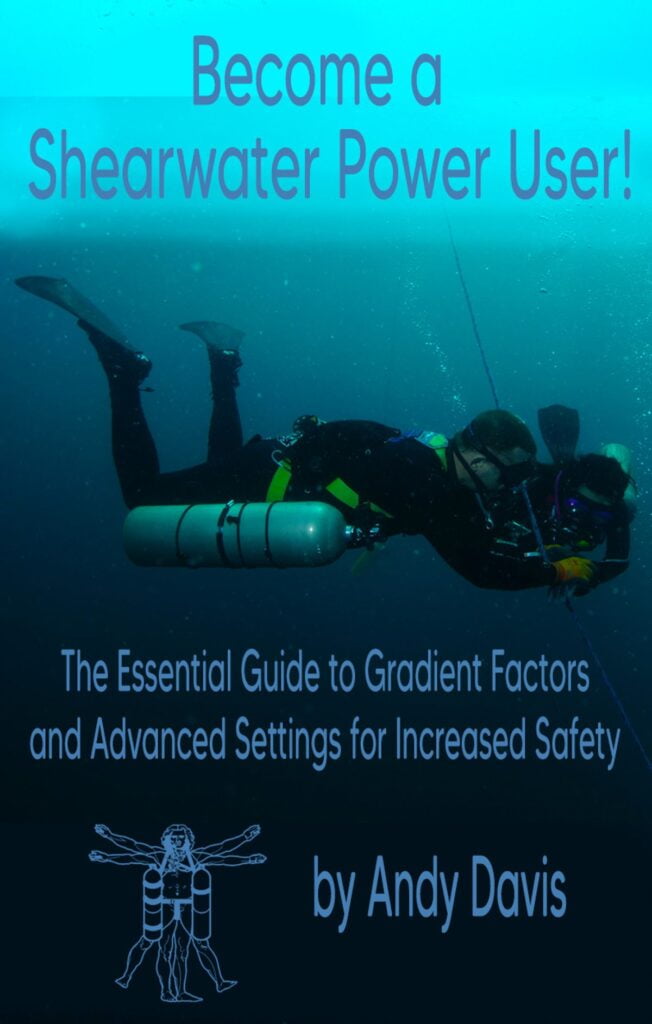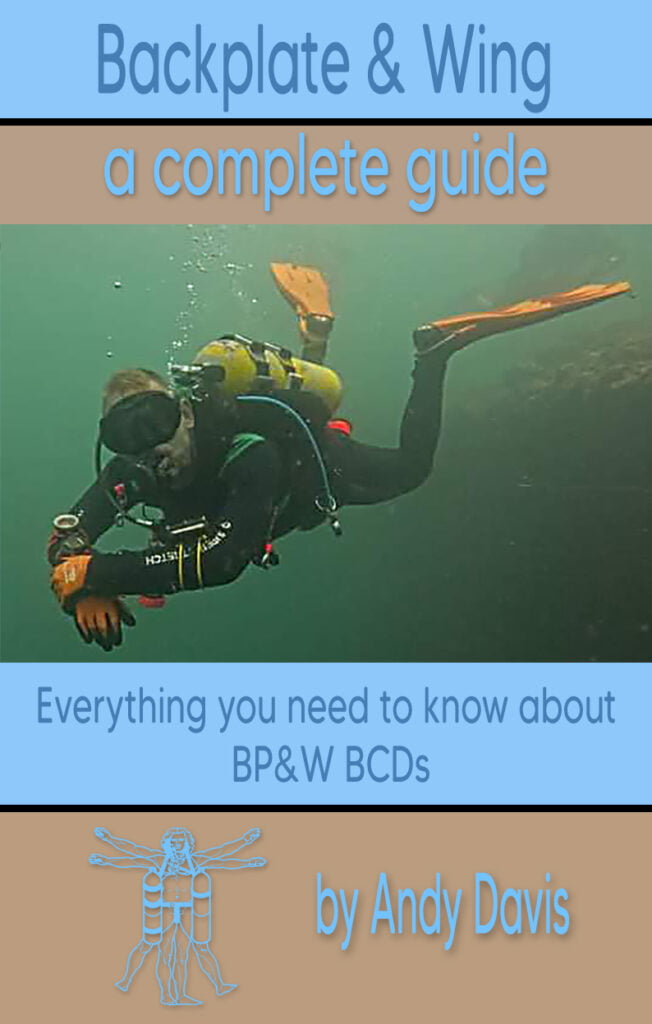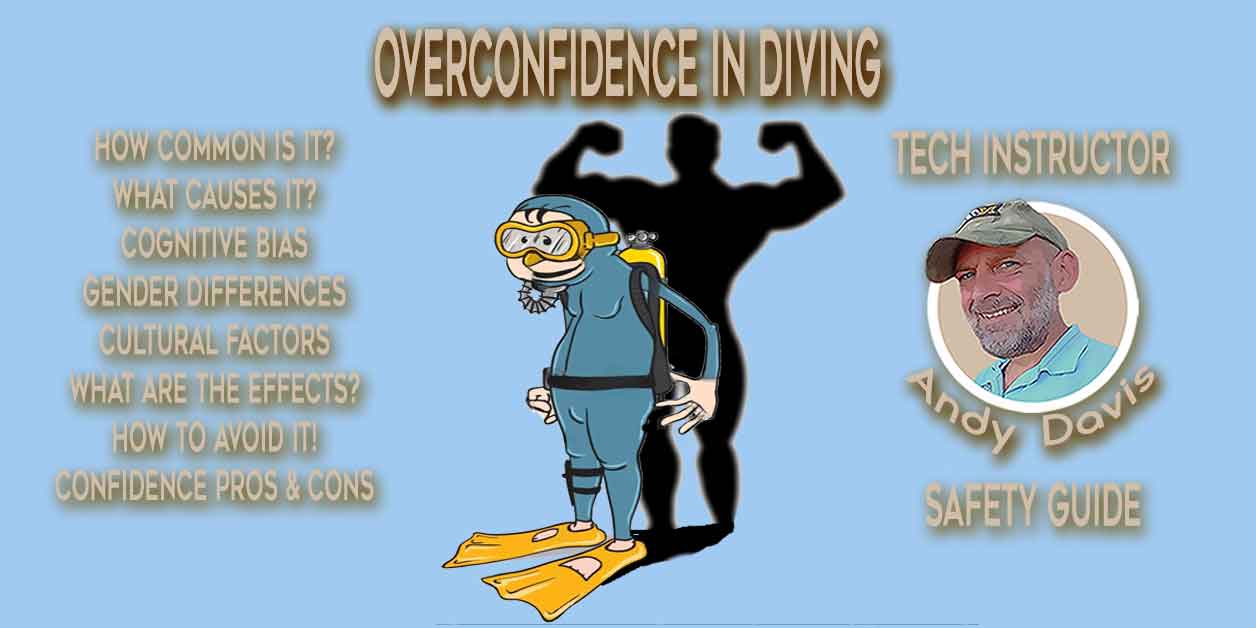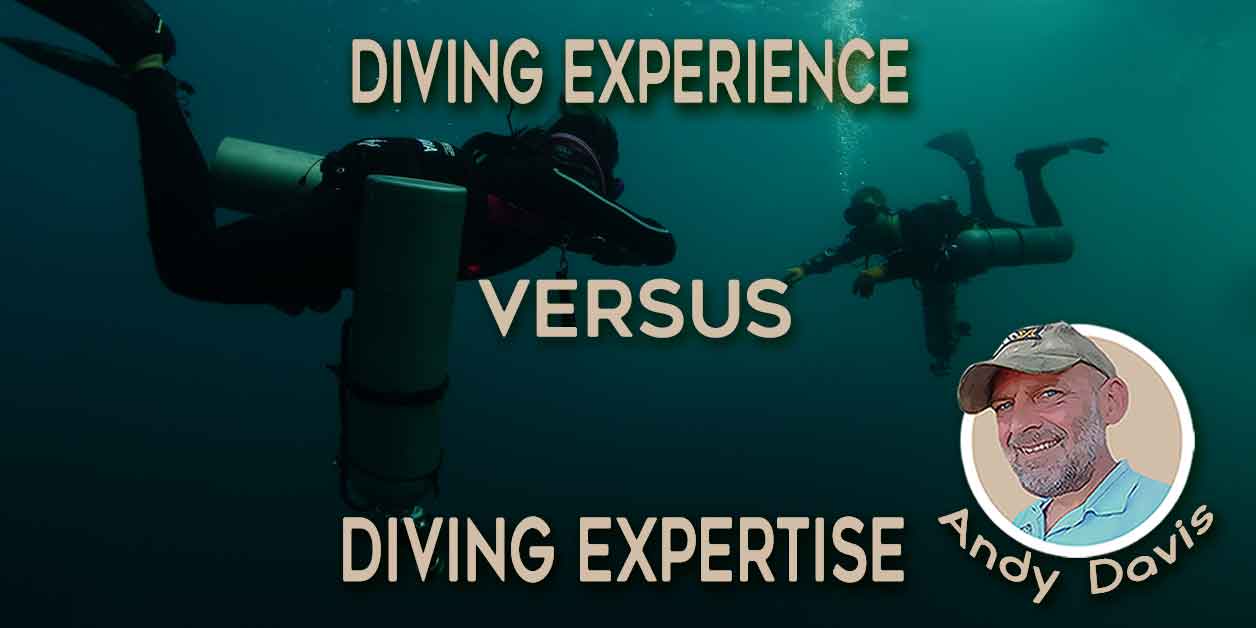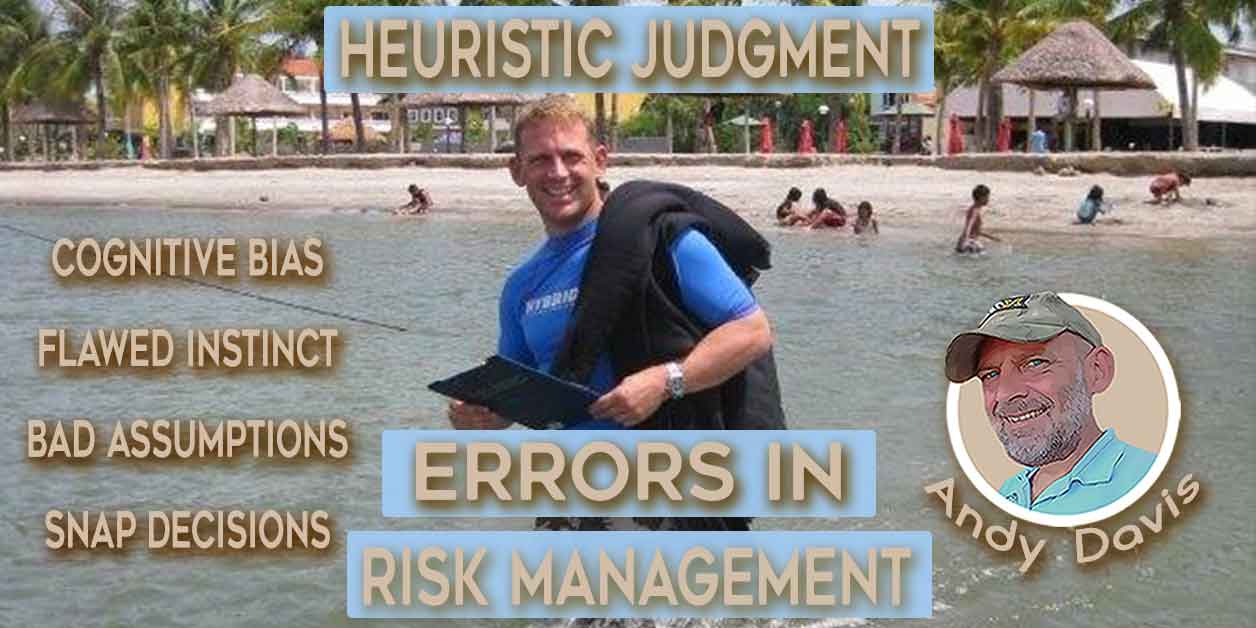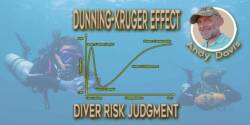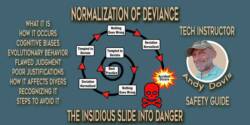Diving Psychology: The Benefits & Applications For Scuba Divers
Scuba diving is not without its challenges. Divers often encounter difficulties, fears, and mental barriers as they face those challenges. However, amidst the many hurdles and pitfalls that a diver can face, there lies an often-overlooked solution: the application of diving psychology.
In this article, I will explain the uses and benefits of understanding scuba diving psychology, offering insights to enhance safety and enjoyment for scuba divers of all levels.
By understanding how psychological factors influence your diving experience, you can optimize your skills, mitigate risks, and enrich your underwater adventures.
Whether it’s managing fear, sharpening focus, improving your judgment, or fostering teamwork and camaraderie with your dive buddies, dive psychology has a real potential to improve your diving ability and experience.
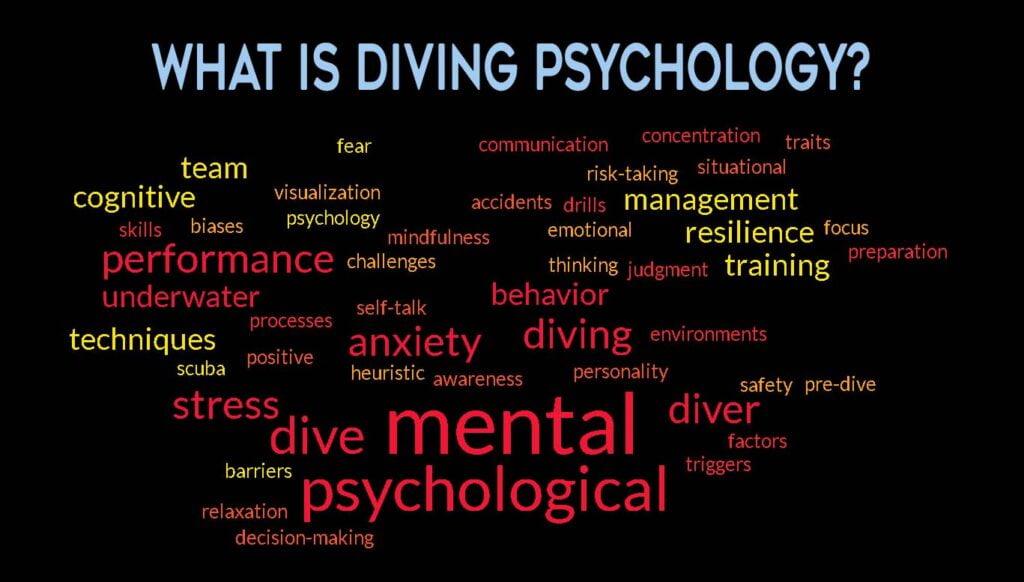
What is Diving Psychology?
Diving psychology covers various psychological aspects relevant to diving, such as how divers adapt to underwater environments, handle stress, and make decisions underwater.
Put simply it’s a scientific field that looks at how our minds affect our diving experiences and safety.
While we know much about the physical side of diving, like how pressure affects our bodies, understanding the psychological side is still a work in progress.
Researchers in diving psychology study how we function mentally and emotionally underwater and what factors might lead to diving accidents.
Diving Psychology and Differing Needs
Different types of diving present different mental challenges. For example, diving instructors work under strict standards and encounter students with learning barriers.
Alternatively, technical divers deal with stressful situations and severe consequences for mistakes. Recreational divers seek enjoyment and relaxation but may be prone to anxiety, unsafe mindset, or poor judgment.
All divers need the capacity to learn from experience, retain mental focus, stay calm, exhibit sound judgment, and make quick decisions.
How does Diving Psychology Contribute To Dive Safety?
Diving psychology research looks into ways to:
- Improve dive training performance
- Refine awareness of anxiety triggers
- Recognize psychological factors in diving accidents
- Enhance stress management strategies
- Identify factors leading to risk-taking behaviors
- Understand how personality traits affect risk
- Define how cognitive biases lead to flawed judgment
- Recognize links between heuristics and unsafe diving practices
- Discern how mental fatigue diminishes self-discipline
Understanding the psychological side of diving is essential for improving diver safety.
Scuba Diving is a Psychological Challenge
Scuba diving is considered a psychologically challenging activity for a variety of reasons. Understanding, and being able to apply, diving psychology empowers divers to overcome those challenges.
To thrive as a diver demands cultivating mental skills, resilience, and maintaining a positive mindset. This is why elite divers emphasize the significance of psychological factors in diving.
Diving Psychology: Fear and Risk
Being underwater and reliant upon a finite and vulnerable gas supply presents divers with unique mental challenges. For less experienced divers, the fear of the unknown can create significant psychological stressors.
Overcoming this fear, managing risk effectively, and maintaining composure in the face of adversity are essential skills that divers must develop to ensure their safety and well-being underwater.
- Underwater exploration involves inherent risks and fears.
- Overcoming fear is crucial for diver safety and well-being.
- Understanding dive psychology helps divers manage fear and assess risks effectively, enhancing safety underwater.
Diving Psychology: Judgment and Behavior
The behavior of divers, and their judgment, has a profound effect on their dive safety. Behavioural psychology can be applied to understand how scuba divers think and act.
Everyone is prone to cognitive biases and heuristic thinking, so understanding those issues relative to scuba diving is key to improving safety judgment.
Similarly, everyone has a unique blend of personality traits. Those traits may predispose a diver to risk-taking behaviors, overconfidence, irresponsible attitudes, or an inappropriate mindset.
- Cognitive biases, heuristics, and personality traits are crucial factors in dive safety.
- Negative behavioral and judgment factors can be rectified if they are understood.
- Understanding dive psychology helps divers recognize pitfalls in their cognitive processes and attitudes.
Diving Psychology: Pursuit of Excellence
As divers progress to more advanced levels, such as technical, cave, and wreck diving, the demand for exceptional precision and coordination becomes increasingly paramount.
Training until you get it right is not enough; in high-risk diving pursuits you can never get it wrong.
The pressure to perform flawlessly in these environments, where the margin for error is minimal, can lead to heightened levels of performance anxiety and self-imposed mental pressure.
Divers who strive for excellence must also manage the psychological challenges accompanying that pursuit.
- Advanced diving demands precision and coordination.
- Pressure to perform flawlessly heightens performance anxiety.
- Understanding dive psychology helps divers cope with mental pressure, ensuring optimal performance and safety during dives.
Diving Psychology: Mental Focus and Concentration
Diving requires intense mental focus and concentration, with divers needing to maintain situational awareness throughout their dives.
Lapses in concentration can lead to mistakes or the increasing severity of accidents. Sustaining focus amidst distractions, stressors, and high task loading requires mental discipline and resilience.
- Diving requires sustained mental focus and concentration.
- Maintaining focus prevents errors and accidents underwater.
- Understanding dive psychology helps divers develop concentration strategies, improving situational awareness and reducing the risk of accidents.
Diving Psychology: Quick Decision-Making
Emergencies sometimes arise when scuba diving. When that happens, there is typically a need for split-second decision-making and sound judgment.
The ability to rapidly assess the situation, prioritize risks, identify and implement workable solutions, is a critical psychological skillset that can mean the difference between life and death.
Developing the ability to make sound decisions under stress is essential for divers to navigate the challenges of diving safely and effectively.
- Divers must make split-second decisions in dynamic environments.
- Rapid decision-making skills are vital for diver safety.
- Understanding dive psychology helps divers enhance their decision-making abilities under pressure, ensuring swift and effective responses to emergent situations.
Diving Psychology: Image and Self-Perception
Beyond the physical demands of diving, there are also psychological factors at play, including the impact of diving on a person’s self-perception and image.
Advanced-level diving has an emphasis on skill mastery and technical proficiency. This can create pressure to maintain an image of competence, an impression of infallibility, or an aura of expertise.
This mental pressure can contribute to psychological challenges such as impostor syndrome, self-esteem issues, performance-related anxieties, and the projection of a false persona.
- Advanced diving impacts a diver’s self-perception and image.
- Pressure to maintain competence influences diver self-esteem.
- Understanding dive psychology helps divers navigate self-perception challenges, promotes self-awareness, and enables authentic, ego-free, behavior.
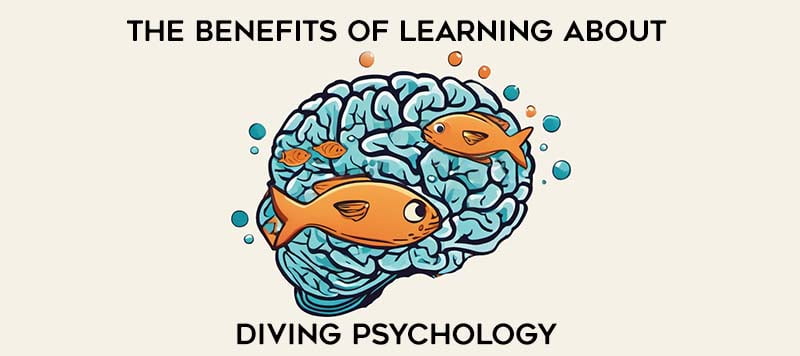
How Understanding Diving Psychology Helps Divers
By learning about and implementing knowledge about the psychological factors of diving, divers can fine-tune their mental performance, overcome personal challenges, and better achieve their goals.
Understanding diving psychology contributes to the diver’s overall mental welfare, increases learning potential, ameliorates poor judgment, and improves underwater safety.
Mental Skills Training
Diving psychology provides divers with valuable tools and techniques to enhance their mental performance and preparation for diving.
These may include visualization exercises, goal-setting strategies, relaxation techniques, concentration drills, and positive self-talk methods.
By incorporating these mental skills into their training regimen, divers can improve their focus, confidence, and overall readiness for the challenges of diving.
- Diving psychology teaches mental skills to enhance performance.
- Visualization and goal-setting improve diver focus and motivation.
- Diving psychology equips divers with tools to enhance mental resilience, realistic self-confidence, and skillset performance.
Coping with Pressure and Anxiety
The underwater environment can be highly stressful and anxiety-inducing for divers, particularly in high-pressure situations or during challenging dives.
Understanding psychology equips divers with effective coping strategies to manage pre-dive nerves, handle pressure situations, and regulate their emotions underwater.
By learning to control anxiety and maintain composure, divers can perform at their best when it matters most.
- Psychology equips divers with effective coping strategies for stress.
- Techniques include visualization, self-awareness, deep breathing, and mindfulness exercises.
- Understanding dive psychology helps divers manage pre-dive nerves and handle stressor situations.
Cognitive, Behavioral, and Human Factors
Flawed cognition, bad judgment, and negative behaviors can put divers at risk. We are all prone to these failings. The hard part is recognizing them within ourselves when they occur.
An understanding of psychology empowers divers to become more self-aware of the mental factors detrimental to their safety.
The first step to profoundly improving dive safety is learning to recognize the discrete influences of heuristic thinking, cognitive bias, ego defenses, the causes of dangerous attitudes, and the impact of personality traits on safety-related behaviors.
- Psychology enables divers to recognize unconscious harmful influences on their behavior and judgment.
- Learning about issues like heuristic thinking, cognitive biases, ego defenses, and personality traits in diving helps to overcome those issues.
- Understanding dive psychology helps divers avoid harmful consequences from unsafe mindsets and poor judgments.
Overcoming Mental Barriers, Fear and Anxiety
Divers occasionally encounter psychological obstacles like mental blocks or anxiety when diving or taking training courses. Dive psychology plays a role in recognizing and overcoming those barriers.
Understanding psychological factors allows divers and instructors to devise techniques to boost realistic confidence, cope with fear, and progressively overcome psychological hurdles that impede their performance.
- Diving psychology addresses mental barriers hindering performance.
- Strategies focus on fear management and confidence-building.
- Understanding dive psychology helps divers identify and overcome mental obstacles, fostering a positive mindset and enhancing diving performance.
Performance Evaluation and Feedback
Understanding psychology allows divers and instructors to analyze performance from a psychological perspective, gaining valuable insight into their mental approach, skillset competency, and decision-making processes.
Through improved feedback and guidance including psychological factors, divers can refine their development strategies, improve their self-awareness, and enhance their overall performance underwater.
- Psychology provides insights into diver performance from a psychological standpoint.
- Feedback facilitates self-awareness and skill improvement.
- Understanding dive psychology helps divers refine their mental approach, skillset performance, and decision-making, optimizing their performance and safety underwater.
Team Communication and Cohesion
Diving typically involves teamwork and collaboration, whether it’s diving with a buddy or participating in group training sessions.
Diving psychology helps divers enhance their communication skills, resolve conflicts effectively, and foster a positive team environment.
By promoting teamwork, cooperation, and cohesion, the application of diving psychology contributes to a more enjoyable and successful diving experience for all involved.
- Diving psychology improves communication skills within dive teams.
- Conflict resolution techniques foster positive team dynamics.
- Understanding dive psychology helps divers enhance communication, resolve conflicts, and foster a positive team environment, ensuring effective teamwork and collaboration underwater.
Conclusion: Diving Psychology
Overall, the combination of fear, precision, pursuit of excellence, mental focus, and the physical demands of scuba diving contribute to its classification as a psychologically challenging activity.
Developing mental skills, resilience, and a positive mindset are essential for divers to navigate these challenges and perform at their best. Given these challenges, it is no surprise that many top divers speak about the importance of psychological factors.
By embracing the psychological aspects of diving, divers can optimize their mental performance, manage challenges effectively, and achieve their goals.
Understanding diving psychology is not only essential for enhancing safety and enjoyment in scuba diving but also for fostering personal growth, resilience, and well-being in all aspects of life.
Diving Psychology Resources
Purchase my exclusive ebook!
A comprehensive guide to the mindset and psychology of diving excellence.
$20 Printable PDF Format, 298 pages
Diving Psychology Blogs
Fit To Dive Blog by Dr Laura Walton, Clinical Psychologist
XRay Mag Articles by Matt Jevon, MSc Research in Sports Psychology
The Human Diver by Gareth Lock, MSc
My Other Diving Psychology Articles
About The Author

Andy Davis is a RAID, PADI TecRec, ANDI, BSAC, and SSI-qualified independent technical diving instructor who specializes in teaching sidemount, trimix, and advanced wreck diving courses.
Currently residing in Subic Bay, Philippines; he has amassed more than 10,000 open-circuit and CCR dives over three decades of challenging diving across the globe.
Andy has published numerous diving magazine articles and designed advanced certification courses for several dive training agencies, He regularly tests and reviews new dive gear for scuba equipment manufacturers. Andy is currently writing a series of advanced diving books and creating a range of tech diving clothing and accessories.
Prior to becoming a professional technical diving educator in 2006, Andy was a commissioned officer in the Royal Air Force and has served in Iraq, Afghanistan, Belize, and Cyprus.
In 2023, Andy was named in the “Who’s Who of Sidemount” list by GUE InDepth Magazine.
Purchase my exclusive diving ebooks!
Diving psychology examines the mental and emotional aspects that affect divers’ behavior, safety, and performance underwater.
It helps improve diver safety, enhances performance, and manages mental barriers such as fear and stress.
It identifies and mitigates cognitive biases, risk-taking behaviors, and stress responses that can lead to accidents.
Fear of the unknown, performance anxiety, managing stress, and maintaining focus are common psychological challenges in scuba diving.
Poor judgment, unmanaged stress, overconfidence, cognitive biases, heuristic thinking, and inadequate mental preparation.
It enables them to recognize and correct flawed thinking patterns for better safety and performance.
Originally posted 2024-05-23 16:29:16.

